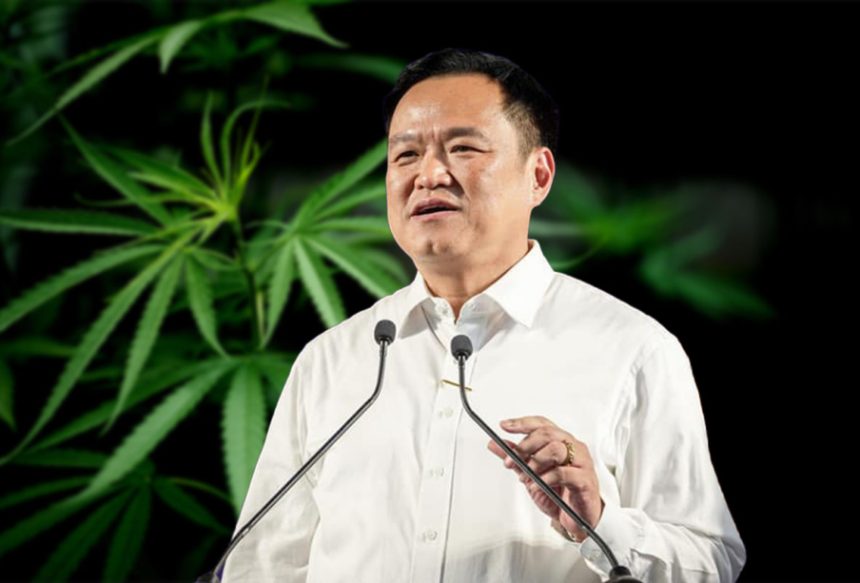Anutin Charnvirakul, a business tycoon-turned-politician best known for his role in championing medical cannabis legalisation, has emerged as the leading contender in Thailand’s fraught race to become the next prime minister. The development follows days of tense negotiations after the dramatic removal of former premier Paetongtarn Shinawatra last week.
People’s Party Sets Conditions for Support
Anutin, leader of the conservative Bhumjaithai Party, secured crucial backing from the opposition People’s Party, which holds the largest bloc of seats in parliament. The party said it would provide the votes needed for Anutin to form an interim government, but only on the condition that he agrees to dissolve parliament within four months and commit to constitutional reforms, potentially through a referendum.
Although the People’s Party has pledged its support, it made clear it will not join Anutin’s government, positioning itself as an outside force pushing for a democratic reset.
Political Upheaval After Court Ruling
The scramble to form a government began after Thailand’s constitutional court ousted Paetongtarn Shinawatra — daughter of former prime minister Thaksin Shinawatra — ruling that she had breached ethical standards in managing a border dispute with Cambodia. Her removal after just one year in office underscored the judiciary’s longstanding role in reshaping Thai politics, which has seen courts repeatedly dissolve popular parties and ban political leaders.
Meanwhile, Pheu Thai, the Shinawatra family’s party, has petitioned the king to dissolve parliament and call new elections. However, uncertainty remains over whether the caretaker government has the authority to act on the request.
Kingmaker Role of People’s Party
The People’s Party, which won 143 seats in the 2023 election, has become the decisive player in the current negotiations. It cannot lead a government itself after its prime ministerial candidate was banned from politics last year, and its predecessor party, Move Forward, was dissolved over its attempt to reform Thailand’s harsh lese majesty laws.
Party leader Natthaphong Ruengpanyawut said the decision to support Anutin was made in the national interest, not for political gain. “Both of these parties have track records of not exercising power in the people’s best interests,” he said of Bhumjaithai and Pheu Thai. “But we have prioritised finding a solution that brings about elections and constitutional change.”
Anutin’s Path Forward
A staunch royalist and head of a family with major construction industry ties, Anutin previously served as health minister during the pandemic and played a key role in pushing through cannabis legalisation. His party was until recently part of a coalition government with Pheu Thai, but withdrew during the political crisis triggered by Paetongtarn’s handling of the Cambodia border dispute.
A parliamentary vote on the new prime minister could take place as early as Friday. If successful, Anutin would lead an interim administration tasked with preparing Thailand for fresh elections and possible constitutional reform — a shift that could reshape the nation’s political landscape.
For Thaksin Shinawatra and his family, the developments mark a major blow, underscoring their waning influence after decades of dominance in Thai politics.




